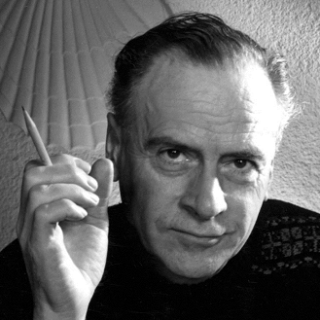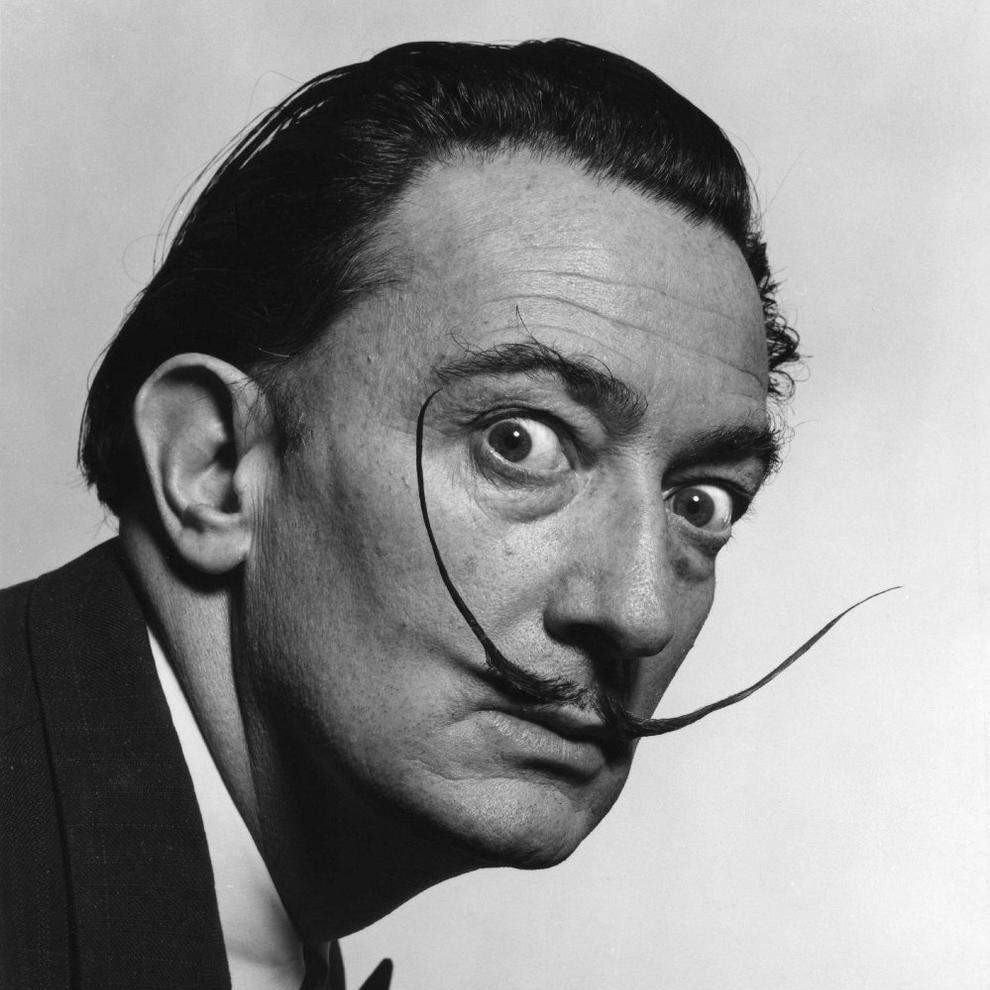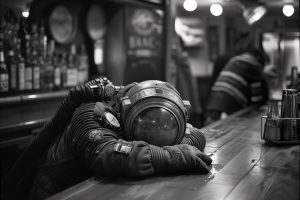Thoughts on artificial intelligence
I first learned about using artificial intelligence to generate images in March 2022. People were using something called a text-to-image model, a machine learning model that allows you to type a description (called a prompt) and an AI creates an image that matches that description.
I looked into it, found out there were a couple models that were open source and available to the public and I started playing around. I started by using an open source model called Disco Diffusion.
I was blown away. The lighting, composition, and colors were almost always aesthetically appealing, or at very least interesting. The images often leaned towards abstraction rather than coherence but, despite the lack of identifiable objects, each image captured the essence of the prompt. And I liked those images a lot.
AI images created using Disco Diffusion
Fast forward to 2024. AI images are everywhere now. I see them in advertisements, I see them on pinterest, I see them as youtube vidoe thumbnails, and I probably see dozens a day that I don’t even realize were created by AI. The technology has gotten so good, and advanced so fast, you can now make images that are indistinguishable from photography
AI images created using Midjourney
Is it art?
If AI can create images that are indistinguishable from the work made by other artists or photographers, than how could it not be considered art? Does art require intention behind it, or is art created when someone sees something and believes it is art? If I have a beautiful painting on my wall and you admire it as art, but then I tell you it was created by AI, does it cease to be art? Perhaps Marshall McLuhan was onto something when he famously said: “Art is Anything you can get away with”

You might say that its only through imagination that art can be created and therefore computers, which do not have imagination, are incapable of creating art. But if photography can be art it seems hard to argue that AI images can’t be art as well. You still control to a certain extent what it is you want to see in your image in both photography and AI images. But it does seem more like discovering art than creating art. Imagine an infinite archive of every possible image that could ever exist, meticulously cataloged by subject, style, medium etc. So you come up with an idea for an image you want to see and then you dig through the archives to find the image that is closest to the one you have in your head. That’s basically what creating images with AI feels like. You wouldn’t say that it was your image in the sense that you created it, but you might call it your image because you found it.
Disputed works that may or may not be art depending on your definition
Won't it be detrimental to Artists?
A big question surrounding AI is whether artists will lose job opportunities due to this technology. Yes. They will. Especially bad artists. But I don’t think skilled artists will be out of a job soon. The very nature of AI is that is can only create variations and combinations of things it has seen before, so an artist with a creative mind will always be able to come up with something better than AI.
Any time new technology is introduced, people everywhere jump at the chance to tell you what a disaster this is going to be for the people working in that particular industry. This is not a new phenomenon. In 1839 a French artist named Paul Delaroche saw a Daguerreotype photograph for the first time and reportedly said:
“From today, painting is dead!”
Even Socrates was wary of the written word. He wrote in the Phaedrus:
“[Writing] will produce forgetfulness in the minds of those who learn to use it, because they will not practice their memory. Their trust in writing, produced by external characters which are no part of themselves, will discourage the use of their own memory within them. You have invented an elixir not of memory, but of reminding”
Apocalyptic predictions about new technologies are older than the printed word.
At the moment, I don’t think AI is doing anything with images that couldn’t be done before with photoshop. It just makes things faster, easier and more accessible. But that’s the beauty of AI images. I might want a very specific picture of a man in a futuristic Mark IV deep sea diving suit passed out at the bar but I might not want it enough to spend 3 hours finding pictures online and photobashing them together in photoshop. Or I might not want to spend 16 hours modeling, UVing, texturing, and rendering the image with CG. But it would be great to have that image in 30 seconds.
Prompt: A photo of a man in a mark v deep sea diving suit asleep at the bar
It doesn't require any skill!
Creating a compelling AI-generated image does require skill, though the process itself may not always require it. The same way a child can make a pencil drawing of a stick figure that anyone could copy instantly, someone could also make an AI image by typing in a single word and clicking a button. In both cases the resulting images were created almost effortlessly, but the quality isn’t really indicative of what the medium is capable of.
Writing an AI prompt requires imagination and a certain amount of knowledge of the particular AI tool you are using. First you need to think up what image you want to create, then you need the ability to put that into words, and the ability to understand how prompting works for each different AI image generator. AI is a tool that can be used to augment a current workflow, or it can be a workflow in and of itself, but I wouldn’t judge it as a tool just because some people are using it to do sloppy work.
It's stealing the work of other artists!
It is trained on other artworks, images, and photographs, but the AI model does not contain any actual images, but rather the aesthetic essence of that image that can be used to created similar looking images. I don’t see this as any different from what any artist or photographer does every single day. No one works in a vacuum. Like it or not, every artist is influenced by every image they have ever seen. They can’t help it. Filmmakers, painters, musicians, and photographers draw inspiration from other artists and craftsman. These get inevitably incorporated into their style to one degree or another. Salvador Dali said “Those who do not want to imitate anything, produce nothing.”

The other thing to point out, is that a particular style cannot be copyrighted. Copyright law protects tangible expressions of ideas, not the ideas themselves. This means that while a specific painting, sculpture, or other artwork can be copyrighted, the underlying style or method of creating that work cannot be. I think that artists should be up front about their influences, but I don’t think it should stop them from playing around with mixing and matching different styles to create something new and original.
It doesn't have a "soul" !
This seems to be a fairly common sentiment online. Don’t use AI to create images, people write, “it doesn’t have any soul!”.
So, the question naturally arises, what is the “soul” of an artwork? What does that mean? Many people would argue that almost everything coming out of Hollywood in the past 8 years was fairly soulless. I’ve seen and made plenty of images with AI that I liked very much, images that I’d be happy to hang on my wall. They have the potential to make me feel things or think things as much as any artwork that uses more traditional means. And what else is the “soul” of an artwork other than the ability to make you think or feel something? You may not think AI images have a “soul”, but if the current tidal wave of AI companions and personal chatbots proves anything, it’s that millions of people are willing to accept soulless AI on a much deeper level than just image creation.
So what's in the future?
There are a couple big changes I see on the horizon, specifically in the world of film and TV. Here are my predictions.
As a VFX artist, I foresee significant changes ahead. I think the type of VFX done on movies today in 2024, like the physical models and glass matte painting that came before computers, will phase out until they are only used rarely or for very specific cases. At the moment AI can be used to upscale low resolution footage, restore old damaged footage, retime footage, and even relight footage. Rotoscoping is getting close to being automated by using AI generated segmentation masks. Image-to-3D modeling and texturing is advancing steadily. Gaussian splatting and precise photogrammetry may soon replace lidar scans of sets. I think the shift from movies before AI and after AI will be as big as the shift from movies before digital effects to movies after digital effects. It will put the scale and scope of current Hollywood movies into the hands of any person with a computer.
As a filmmaker, I see Hollywood losing its hold on the entertainment industry. There has been a marked decline over the last 8 years of movie quality but also audience interest to watch new movies (could these two things be related? Hmmmm…) So if the main source of entertainment doesn’t seem to entertain anymore, people will find alternate sources of entertainment. To a certain extent, they already have. Youtube, TikTok and social media seem to be filling a lot of the space and time that used to be reserved for watching movies and TV. Movies and TV will start being made for much smaller and more focused audiences. Historically, people have complained that Hollywood generally only makes movies that represent the more liberal values and views of the people who run the studios. This has been a missed opportunity as there is obviously a lot of interest in more diverse stories. Movies like “The Passion of the Christ” which was independently funded, ended up being the top grossing R-rated movie of all time for a while. The TV series The Chosen is another example. It raised $45 million making it the largest crowdfunded TV project in history, and went on to have a successful theatrical run. There is a hunger for movies, shows and entertainment of all types that portray different stories, ideologies, and worldviews than typical Hollywood fare. As AI puts more complicated productions within reach of the average filmmaker, there will be an exploding content market being consumed by audiences that are hungry for stories that appeal to their sensibilities. It’s possible we may soon get to a place where entertainment becomes so personalized that any two people off the street would likely not have seen anything that the other one had watched. Everyone will be watching entertainment highly curated to their exact viewing preferences.
In this new paradigm, the role of AI is not just as a technological advancement but as a transformative force that will empower creators and connect them with audiences in unprecedented ways. The future of entertainment lies in its ability to adapt and innovate, embracing the possibilities that AI offers. As we stand on the cusp of this exciting change, the potential for fresh, diverse, and deeply personal storytelling has never been greater. The next chapter of film and TV will be written by those who dare to explore these new frontiers, creating a rich tapestry of content that reflects the diverse world we live in.

2 Responses
Inspired by your perspective…I especially appreciate your consideration of the “Christian” depictions that the mainstream dismisses and often belittles. Faith and artistry are symbiotic forces that tap into the unknown in ways a narrowed curiosity fails to explore or imagine. Thank you for offering an astute understanding that optimism in the face of shattered norms is truly the eternal charge of the artist. 🙂
Thanks Raul!